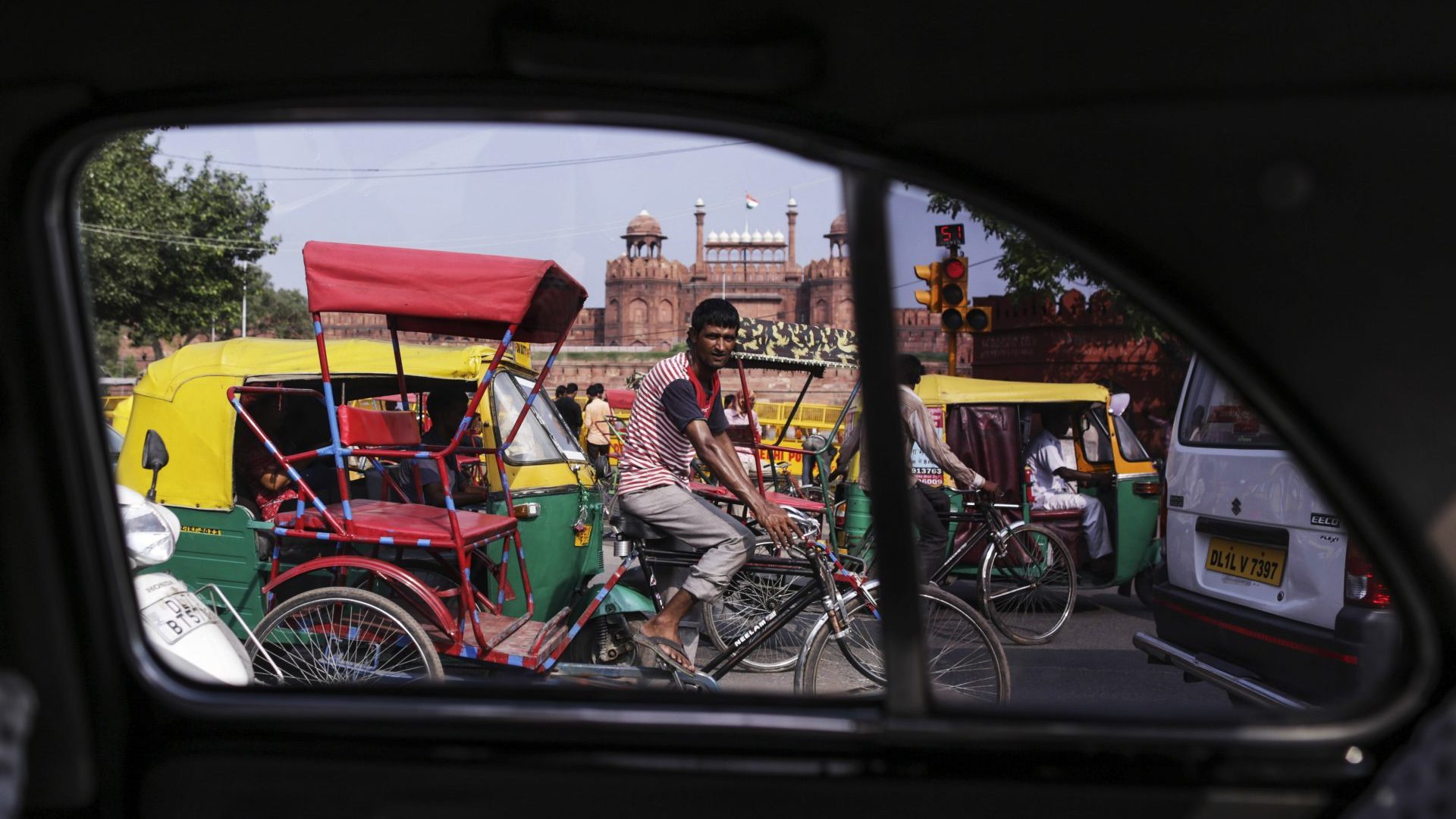

On its path to global domination, Uber is hitting some bumps along the way. Drivers for ride-sharing companies Uber and Ola in New Delhi and other cities in India have been on strike for the past seven days to protest low wages and long hours.
At issue is the the rat race environment that ride-sharing companies have created. To compete with Ola, Uber has lowered its fares, and as a result, drivers have had to increased the amount of hours they work to earn the same amount. Compounding the problem, the companies employ perverse incentives that encourage drivers to complete a certain number of rides in a set period of time in order to earn bonuses, which often leads to unsafe driving.
Drivers have resorted to sleeping in their cars to increase the amount of time they’re on the road. One Uber driver reportedly committed suicide when he fell behind on the money payments for the vehicle he purchased to operate with the start-up mobility company. What do the protesters want? To reinstate the same bonuses offered when the service began, limit the number of drivers on the road, increase fares, and lower Uber’s commission.
Strike impacts commuters
On Monday morning, customers experience average wait times for an Uber or Ola between 17 minutes to 29 minutes, and in a bit of pay back, some people using conventional taxis and rickshaws–which are not supporting the strike—reported experiencing the type of surge fare normally associated with their ride-sharing counterparts. Government officials have tried to intervene this week to encourage operators to return to work. But that may not be an easy ask. Drivers that didn’t participate in the strike or return to work reported facing an angry backlash from fellow workers that resulted in assaults and the wanton smashing of vehicles.
Qatar Uber drivers protest wage cuts, cash policy
Inspired by the movement in India, Uber drivers in Qatar also went on strike this week to protest a 15-20% percent rate cut for passenger fares. In addition to low earnings, Qatar Uber drivers aren’t happy with the company’s recent decision to accept cash payments to keep up with its local competition, Careema. Drivers report several passengers skipping out on fares, and unlike Careem, Uber doesn’t compensate them. Uber may be reconsidering their reversal of the no-cash policy entirely. In Brazil, Uber drivers have been targeted for robberies—many of which have resulted in murder—because criminals assume they carry large amounts of cash.
U.S. Uber drives may unionize
Although the company is facing dozens of lawsuits at home, there aren’t any reported cities encountering driver strike. However, the Taxi Worker’s Alliance has been organizing with Uber drivers following Seattle’s decision to allow their unionization. Hacks went on strike last month to protest President Trump’s extreme vetting executive order, which Uber seemingly broke when it cancelled the surge fare that followed increased ride demand. Although no plans for a strike in the U.S. from either Uber or taxi drivers have been announced, a “wildcat” strike in Rome, Turin, and Milan began today to oppose a bill easing hired car regulations.